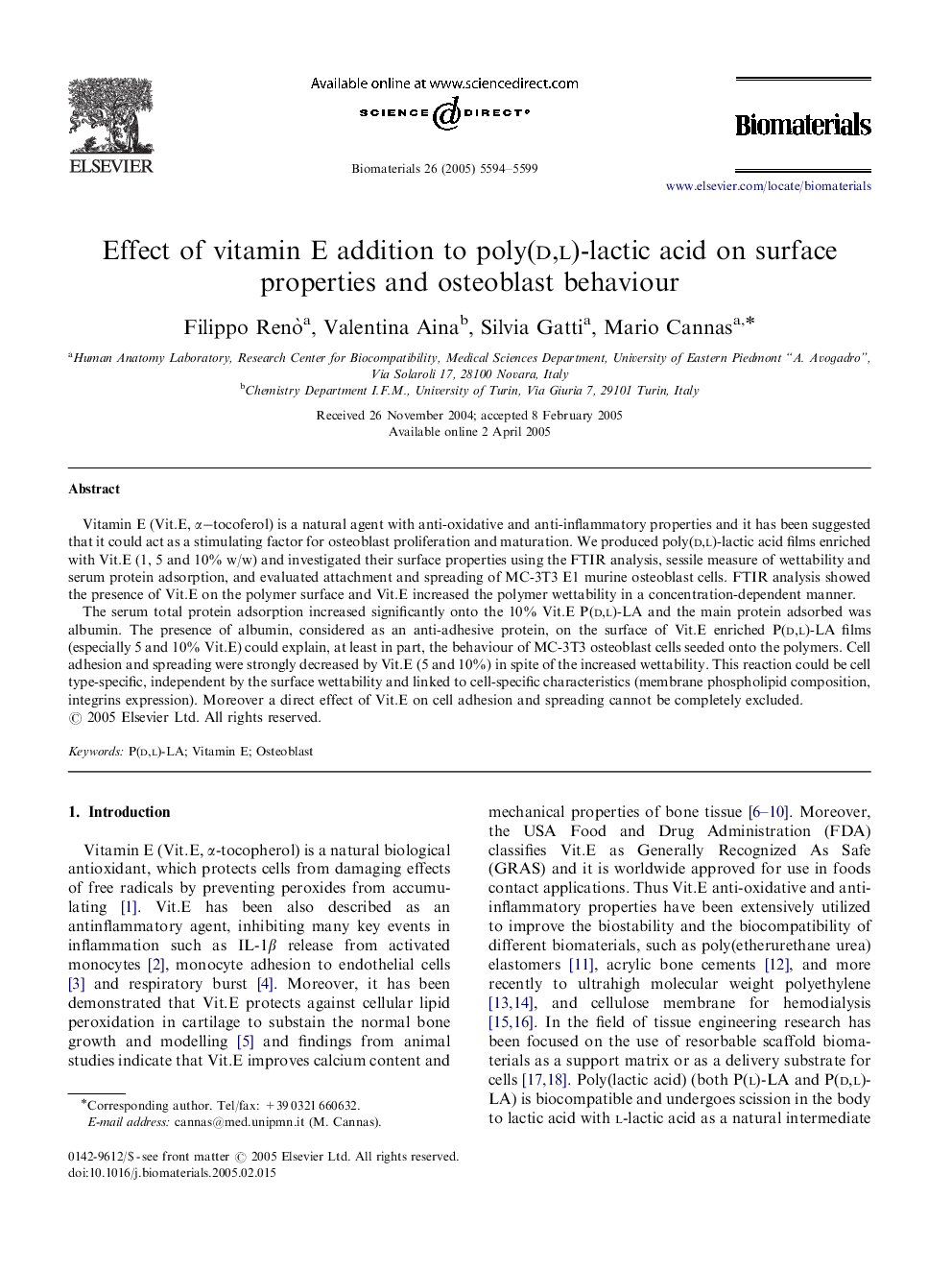| Article ID | Journal | Published Year | Pages | File Type |
|---|---|---|---|---|
| 11064 | Biomaterials | 2005 | 6 Pages |
Vitamin E (Vit.E, αα−tocoferol) is a natural agent with anti-oxidative and anti-inflammatory properties and it has been suggested that it could act as a stimulating factor for osteoblast proliferation and maturation. We produced poly(d,l)-lactic acid films enriched with Vit.E (1, 5 and 10% w/w) and investigated their surface properties using the FTIR analysis, sessile measure of wettability and serum protein adsorption, and evaluated attachment and spreading of MC-3T3 E1 murine osteoblast cells. FTIR analysis showed the presence of Vit.E on the polymer surface and Vit.E increased the polymer wettability in a concentration-dependent manner.The serum total protein adsorption increased significantly onto the 10% Vit.E P(d,l)-LA and the main protein adsorbed was albumin. The presence of albumin, considered as an anti-adhesive protein, on the surface of Vit.E enriched P(d,l)-LA films (especially 5 and 10% Vit.E) could explain, at least in part, the behaviour of MC-3T3 osteoblast cells seeded onto the polymers. Cell adhesion and spreading were strongly decreased by Vit.E (5 and 10%) in spite of the increased wettability. This reaction could be cell type-specific, independent by the surface wettability and linked to cell-specific characteristics (membrane phospholipid composition, integrins expression). Moreover a direct effect of Vit.E on cell adhesion and spreading cannot be completely excluded.
